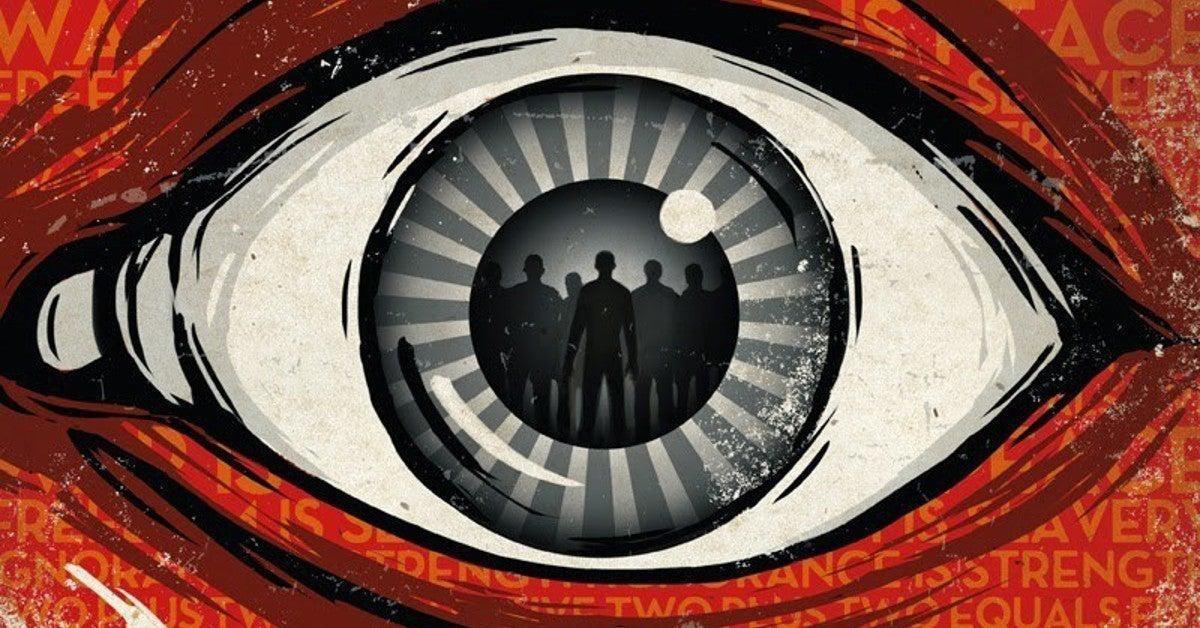“You on the 2am Emirates flight?” asked the American. “I flew in on Emirates, but I’m headed home on United,” I replied. “I only fly Emirates and Etihad in the Middle East. Lost a friend in 9-11 and I don’t know, ever since I find myself making these little decisions, it’s probably stupid, it’s such a miniscule risk,” he said. My flight into Dubai went directly over Tehran. And now, hours before my return, the Iranians were warning of imminent preemptive action. “Very sorry to hear that,” I said, the shock wave from that tragic day in 2001 still rippling. And to my mild relief, the United flight home veered northwest, over Saudi Arabia.
Overall: “Doing too little could allow above-target inflation to become entrenched and ultimately require monetary policy to wring more persistent inflation from the economy at a high cost to employment,” said Jerome Powell, in a speech to the Economic Club of New York, the ghost of Arthur Burns sitting on his left shoulder, whispering in his ear. “Doing too much could also do unnecessary harm to the economy,” continued the Fed Chairman, his audience looking for even the slightest signal as to where he’s headed next. But of course, the central bank has just as terrible a track record of forecasting the path of the economy, inflation, and interest rates, as everyone else. And the most remarkable aspect of this reality is that unlike all others, the Fed directly controls the latter. “Additional evidence of persistently above-trend growth, or that tightness in the labor market is no longer easing, could put further progress on inflation at risk and could warrant further tightening of monetary policy,” said Powell, the spirit of Paul Volcker standing on his right shoulder, encouraging Jerome onward, upward, to offset the effects of a 2023 federal budget deficit that when stripped of accounting gimmicks roughly doubled to $2trln. The Federal Reserve had just published its semi-annual Financial Stability Report. “Escalation of these conflicts or a worsening in other geopolitical tensions could reduce economic activity and boost inflation worldwide, particularly in the event of prolonged disruptions to supply chains and interruptions in production,” the report said. “The global financial system could be affected by a pullback from risk-taking, declines in asset prices, and losses for exposed businesses and investors, including those in the US,” it added. And rising from deep within, came a sickening chill. You see, in recent years, while some had warned that we face a repeat of the 1970s, others saw the return of the 1930s. And for the first time in his Chairmanship, Powell saw the rising possibility that he may need to navigate both.
Week-in-Review: Mon: Israel defense minister says Israel is preparing for a long/costly war, Iran’s foreign minister warns expansion of the war on other fronts is ‘approaching the inevitable stage,’ Poland’s pro-EU opposition coalition performs well in weekend election, China 1y MLF unch as exp, Yellen says higher rates may persist but economy is in a good place, Venezuela / US close to a deal to ease sanctions on oil, Japan’s Kanda says rate hikes and intervention can support ccy, Fed’s Harker says should not be thinking about rate increases / Fed’s Goolsbee calls inflation slowdown a trend rather than a blip, iPhone sales in China worse than exp, Indonesia expts -16.17% (-13.70%e) / impts -12.45% (-5.00%e), Italy CPI 5.6% (5.7%e), US Empire mfg -4.6 (-6.0e), S&P +1.1%; Tue: Biden trip to Israel & Jordan confirmed, US strong ret sales sends 2y ylds to fresh highs, reports that BOJ discussing raising 2024 infl projection, Japan trade unition to ask for 5%+ wage growth at spring negotiations, US announces more chip restrictions to China, Fed’s Barkin says can’t rely on tightening from long end rates, Jim Jordan loses first election to be Speaker, Poland’s opposition coalition victory confirmed, US ret sales 0.6% (0.1%e), Canada CPI 3.8% (4.0%e), US IP MoM 0.3% (0.0%e), US NAHB housing mkt index 40 (44e), S&P flat; Wed: Israel and Hamas blame each other for deadly missile strike on Gaza hospital / Biden’s summit with Arab leaders in Jordan canceled as a consequence / Pentagon shows Biden ‘evidence’ that Israel did NOT strike hospital, Iran calls for Arab nations to impose oil embargo on Israel, Egypt to allow aid to Gaza, BOJ conducts unscheduled bond purchase to slow the pace of 10y yields, Jordan fails to win speaker election #2, China GDP 4.9% (4.5%e) / China IP 4.5% (4.4%e) / China Retail sales 5.5% (4.9%e), UK CPI 6.7% (6.6%e) / Core 6.1% (6.0%e) / RPI 8.9% (8.8%e), EU CPI 4.3% as exp / Core 4.5% as exp, US Housing starts 1358k (1383k e), S&P -1.3%; Thu: Powell signals a Nov hike is unlikely / FOMC proceeding carefully but no evidence that policy is too tight, Biden announces $100m aid to Gaza, missile strikes hit US bases in Syria, data shows China sold the most US stocks/bonds in four years, China’s Country Garden officially misses USD bond payment, US eases crude sanctions on Venezuela, US init claims 198k (210k e), US Philly Fed business outlook -9 (-7e), US Leading Index -0.7% (-0.4%e), S&P -0.9%; Fri: Jim Jordan removed as nominee for speaker after losing support of republican committee, Biden addresses the nation and asks congress to approve aid to Israel, BOJ offers 5y loans to banks to curb rate rise, Fed’s Harker says they should ‘triple down’ on higher for a while narrative, Saudi / UAE leaders held rare talks, BofA indicator triggers ‘contrarian buy signal’, US/EU failed to reach deal on steel/aluminum, China’s LPR unch as exp but huge jump in short term cash injection to keep funding costs low, India rejects demands from some Russian oil suppliers to pay for crude in Yuan, Japan CPI 3% as exp / Core CPI 4.2% (4.1%e), China 1y & 5y LPR unch as exp, Germany PPI -14.7% (-14.1%e), S&P -1.3%.
Weekly Close: S&P 500 -2.4% and VIX +2.39 at +21.71. Nikkei -3.3%, Shanghai -3.4%, Euro Stoxx -3.4%, Bovespa -2.2%, MSCI World -2.5%, and MSCI Emerging -2.7%. USD rose +1.2% vs Indonesia, +0.8% vs Mexico, +0.7% vs Turkey, +0.4% vs Canada, +0.2% vs Chile, +0.2% vs Yen, +0.1% vs China, and flat vs South Africa. USD fell -9.4% vs Bitcoin, -3.9% vs Ethereum, -1.2% vs Russia, -0.9% vs Brazil, -0.8% vs Euro, -0.5% vs Sweden, -0.3% vs Australia, -0.2% vs Sterling, and -0.2% vs India. Gold +2.7%, Silver +2.7%, Oil +2.0%, Copper -0.2%, Iron Ore -0.3%, Corn +0.5%. 10yr Inflation Breakevens (EU +8bps at 2.34%, US +13bps at 2.47%, JP flat at 1.23%, and UK +4bps at 3.84%). 2yr Notes +2bps at 5.08% and 10yr Notes +30bps at 4.92%.
Year-to-Date Equities (high to low): Argentina +100.5% priced in US dollars (+296.3% priced in pesos), Hungary +32.7% priced in US dollars (+28.6% in forint), Venezuela +27.4% in dollars (+162.4% in bolivar), Greece +24.9% in dollars (+26.4% in euros), NASDAQ +24.1% in dollars, Poland +23.3% (+19%), Russia +16.1% (+51.8%), Denmark +14.2% (+15.9%), Italy +14.1% (+15.4%), Taiwan +10.4% (+16.3%), S&P 500 +10% in dollars, MSCI World +8.5% in dollars, Spain +8.5% (+9.7%), Brazil +8.2% (+3.1%), Ireland +8.2% (+9.4%), Czech Republic +8.1% (+11.6%), India +7.3% (+7.9%), Mexico +6.6% (-0.4%), Germany +5.1% (+6.3%), Euro Stoxx 50 +4.9% (+6.1%), Japan +4.7% (+19.8%), France +4.1% (+5.3%), Netherlands +2.8% (+4%), Saudi Arabia +1.9% (+1.7%), UK -0.2% (-0.7%), Colombia -0.3% (-13.1%), Switzerland -0.3% (-3.5%), Korea -0.7% (+6.2%), Indonesia -2.4% (0%), Canada -2.6% (-1.4%), Sweden -3.4% (+1.7%), Chile -3.5% (+7%), Austria -4% (-2.9%), Russell -4.6% in dollars, Norway -4.8% (+7.2%), Portugal -6.2% (-5.1%), Singapore -7.6% (-5.4%), Philippines -8.1% (-6.4%), Turkey -8.9% (+36.3%), UAE -8.9% (-8.9%), China -8.9% (-3.4%), Australia -9.1% (-2%), Belgium -10.4% (-9.4%), Malaysia -11% (-3.6%), New Zealand -12.1% (-4.2%), South Africa -13.4% (-3.5%), HK -13.4% (-13.2%), Finland -17.2% (-16.2%), Israel -19.2% (-7.2%), Thailand -20.3% (-16.1%).
The Future: “When I signed the check to build this museum, I thought, well, that is a lot of money,” said the Economy Minister. I smiled. When His Excellency thinks a project is expensive, it truly is. We were in the magnificent Museum of the Future [image here], at a summit called SuperBridge, dedicated to exploring the rise of new markets, fast tracking partnerships on transformative opportunities in the Middle East, Asia, Africa, Latin America and the rest of the World. I was the American minority. Eyes and ears open. Hunting.
Pyramids: “For every Chinese born after 1990, six people support them,” said the CEO of a travel firm with 400mm customers. I had asked what she sees in China’s youth, the tang ping movement fascinates me. “After the one-child policy, young people each have two parents and two sets of grandparents,” she said. “There is a lot of income and assets behind each child even if they do not work.” It was interesting that she focused on this issue above all else. “And their first priority is travel, their second priority is experiential, music performances, artistic performance.”
Three: “Africa is 3% of global GDP, but we are not 3% of the future,” said a former Prime Minister. “The median age of Africa’s population is 18, and in Europe it is 45. We look like China 30yrs ago, but we have yet to realize our demographic dividend.” China, India, and Africa each have basically the same populations of roughly 1.45bln. GDP per capita in both India and Africa is nearly the same. China GDP per capita is roughly 5x larger. “Now we have the ability to leapfrog into becoming more advanced economies using the latest technologies.”
Leapfrog: Elon left South Africa at 17. Now 4,500 of his Starlink satellites connect some of earth’s most remote locations [map here]. Soon the world will be virtually connected. The cost will collapse, allowing the world’s most powerful software to be accessed everywhere. Children will learn at a quality level and scale previously unimaginable, using AI-enabled individually tailored tutoring. Stranded intelligence across the Global South will be brought online. We don’t know how many geniuses are born in South Sudan per decade, but the number is not zero.
Boiling: The Global South is a concept used to describe the swath of 77 developing nations plus China, situated below North America, Europe, Russia. It excludes Japan, South Korea, Australia, New Zealand. China’s Belt and Road Initiative, which celebrated its 10th anniversary this week, is being built in large part to connect these nations. The Global South represents 85% of world population and 39% of GDP. As it struggles to lift living standards for its citizens, it does so with an eye toward sustainability, as climate change affects these nations in disproportionate ways.
Gaps: The Global South has such a low base of consumption that plans for sustainable development are attractive to its citizens because virtually any pace of progress represents an improvement on current conditions. This stands in sharp contrast to the Global North where sustainable development is seen to require a reduction in consumption, sacrifice. While the Global South plans tomorrow’s infrastructure and greenfield projects, the Global North must deal with stranded capital, redundant costs, lobbying, political resistance. An interesting irony.
Anecdote: The Saudi desert lay far below, hidden, the dark of night. We would soon pass comfortably between Gaza and Ukraine, conflicts, flashpoints, then across Europe, the Atlantic, home. I’d set out in early August to travel hard, explore, hunt. It had been such a boring summer, the kind of lull often followed by more exciting markets; a time to be moving, listening. Abu Dhabi and Dubai are on fire, cranes spinning like North Sea wind farms. The fracture between East and West, the Global North and South, is widening in ways that increasingly generate their own momentum. The process will require a massive rebuild of infrastructure, a hardening of critical pipelines, fiberoptic cables, strategic industries, factories, requiring new capital, while stranding old capital stock. The UAE is positioned to bridge this chasm, a neutral place to meet, trade, exchange. The growing consensus is that a widening conflict would ultimately include Taiwan, unplugging Hong Kong from the West. Singapore will side with the US and be unsafe for those allied with Beijing. In such a world, Switzerland has been the sort of place for adversaries and fierce competitors to safely meet, for the elite to park their wealth, securely, privately. But those times were during periods of conflict amongst the great powers in the Global North. With the emerging Global North/South divide, it appears this new world prefers a more colorful, diverse place, where no matter your nationality, you blend right in. There is an energy, an eagerness, to the place. A concerted effort, coordinated, funded with vast national wealth, to attract talent, industry, execution. All this in the shadow of Saudi Arabia, flush with energy, capital, awakening, asserting. And while the Global South is still desperate to engage with the West, one gets the sense that our political paralysis and dysfunction has created a vacuum, which our competitors and adversaries are quite eager to fill.
Good luck out there,
Eric Peters
Chief Investment Officer
One River Asset Management
Disclaimer: All characters and events contained herein are entirely fictional. Even those things that appear based on real people and actual events are products of the author’s imagination. Any similarity is merely coincidental. The numbers are unreliable. The statistics too. Consequently, this message does not contain any investment recommendation, advice, or solicitation of any sort for any product, fund or service. The views expressed are strictly those of the author, even if often times they are not actually views held by the author, or directly contradict those views genuinely held by the author. And the views may certainly differ from those of any firm or person that the author may advise, converse with, or otherwise be associated with. Lastly, any inappropriate language, innuendo or dark humor contained herein is not specifically intended to offend the reader. And besides, nothing could possibly be more offensive than the real-life actions of the inept policy makers, corrupt elected leaders and short, paranoid dictators who infest our little planet. Yet we suffer their indignities every day. Oh yeah, past performance is not indicative of future returns.





